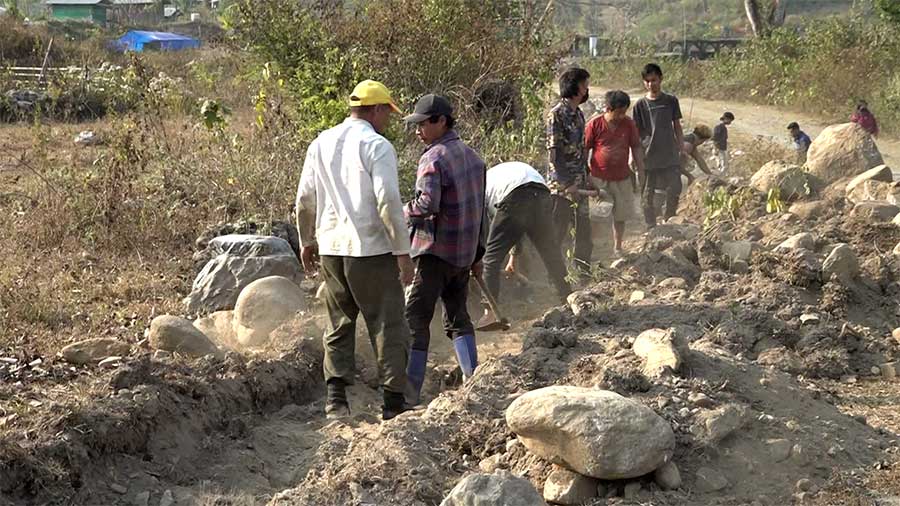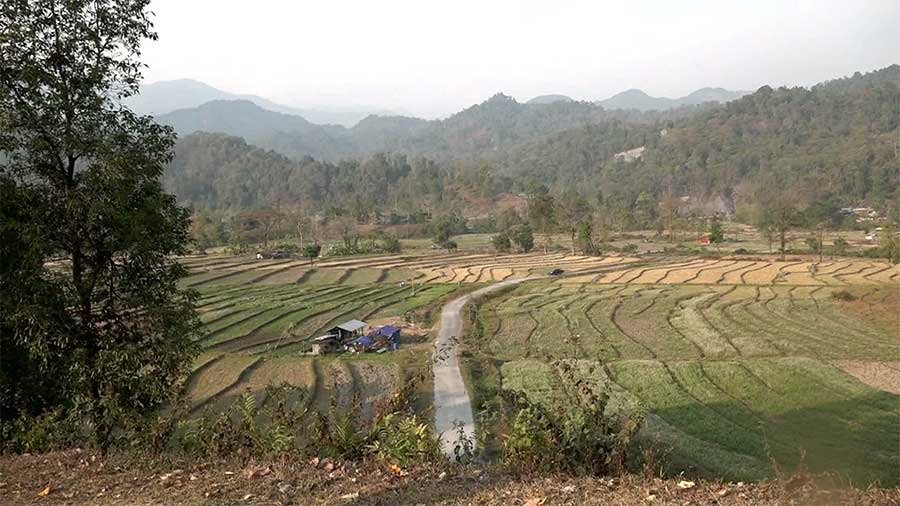
The villagers of Labtsakha and Nyenyul in Singye Gewog, Sarpang have been in a never-ending battle against wildlife to guard their crops. Solar fencing did not serve its purpose. Most villagers gave up fighting the losing battle and left their wetlands fallow. However, a project to install chain link fences around the 700-acre wetland in the two villages is offering a glimmer of hope to farmers who have had enough of wildlife damaging their crops.
 The seven-kilometre chain link fencing will enclose the entire Labtsakha and half of Nyenyul village.
The seven-kilometre chain link fencing will enclose the entire Labtsakha and half of Nyenyul village.
Delighted, people say they now need not worry about guarding their fields at night or wild animals entering in it. Locals will revive cultivation in the fields they left fallow so far.
“Barbed wire fencing could prevent wild elephants from making into our fields” says Ngajay Tenzin, a resident of Singye Gewog.
Ngajay added that the villagers are expecting better production hereafter.
Regarding solar fencing not serving its purpose, Kishore Bhataria said, “it served its purpose initially, but later wild elephants got used to it and damaged solar fencing poles with their feet to get inside our fields.”
People are happy the new chain link fence will also keep away other wild animals like monkey and boars.
Singye Gup Jigme said the project will benefit 60 households of the two villages.
The agriculture and livestock ministry is providing the fencing materials, while locals are contributing labour.
The gup says the wetlands has the capacity to produce 12 metric tonnes worth of crops. However, with wild animals damaging the crops, their output has been reduced to about seven metric tonnes.
According to Bhataria, the villagers are now hoping to harvest almost everything that they have sown.
The project is being carried out at a cost of over Nu 11 M.
Labtsakha village on the way to Sarpang from Singye Gewog office.
Karma Wangdi, Sarpang
Edited by Sherub Dorji






